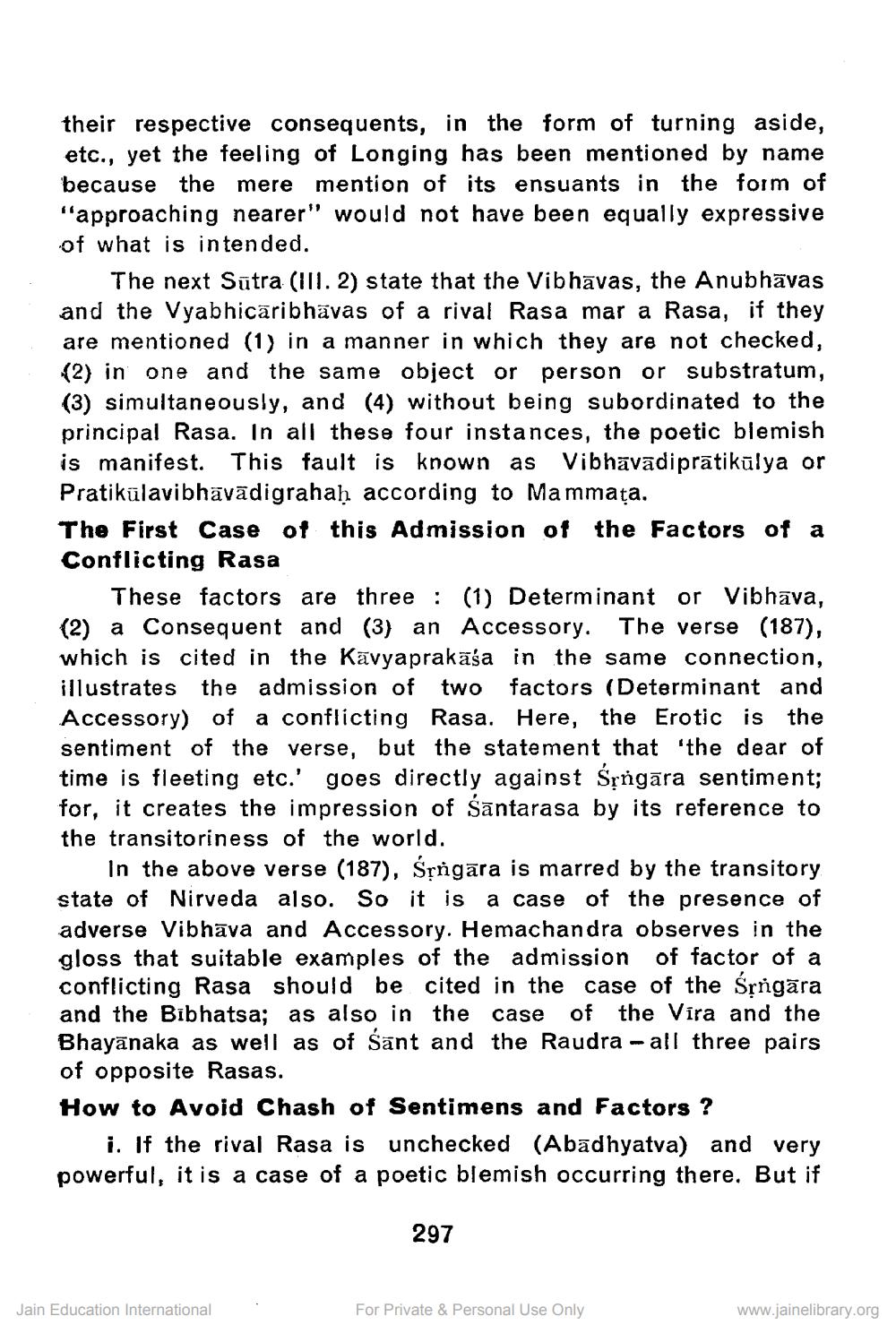________________
their respective consequents, in the form of turning aside, etc., yet the feeling of Longing has been mentioned by name because the mere mention of its ensuants in the form of "approaching nearer" would not have been equally expressive of what is intended.
The next Sutra (III. 2) state that the Vibhāvas, the Anubhavas and the Vyabhicaribhavas of a rival Rasa mar a Rasa, if they are mentioned (1) in a manner in which they are not checked, (2) in one and the same object or person or substratum, (3) simultaneously, and (4) without being subordinated to the principal Rasa. In all these four instances, the poetic blemish is manifest. This fault is known as Vibhāvādiprātikulya or Pratikülavibhāvādigrahaḥ according to Mammața.
The First Case of this Admission of the Factors of a Conflicting Rasa
These factors are three (1) Determinant or Vibhava, (2) a Consequent and (3) an Accessory. The verse (187), which is cited in the Kavyaprakāśa in the same connection, illustrates the admission of two factors (Determinant and Accessory) of a conflicting Rasa. Here, the Erotic is the sentiment of the verse, but the statement that 'the dear of time is fleeting etc.' goes directly against Sṛngara sentiment; for, it creates the impression of Santarasa by its reference to the transitoriness of the world.
In the above verse (187), Śṛngara is marred by the transitory state of Nirveda also. So it is a case of the presence of adverse Vibhava and Accessory. Hemachandra observes in the gloss that suitable examples of the admission of factor of a conflicting Rasa should be cited in the case of the Śṛngāra and the Bibhatsa; as also in the case of the Vira and the Bhayanaka as well as of Sant and the Raudra - all three pairs of opposite Rasas.
How to Avoid Chash of Sentimens and Factors ?
i. If the rival Rasa is unchecked (Abadhyatva) and very powerful, it is a case of a poetic blemish occurring there. But if
Jain Education International
297
For Private & Personal Use Only
www.jainelibrary.org




